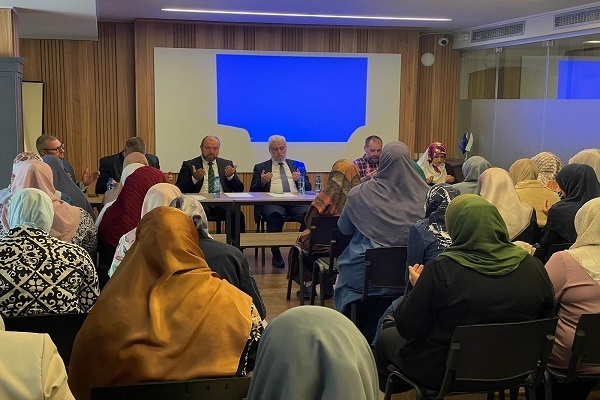Bulgaria’s Dar al-Ifta Launches Special Section for Women

The women’s section of the Dar al-Ifta has been launched in a qualitative move aimed at strengthening the role of women in society and the family.
The news was announced during a large-scale meeting in Plovdiv, southern Bulgaria, which brought together female teachers and instructors of Islamic religious sciences working in Quranic education courses from across the country.
It was emphasized that the role of Muslim women in Bulgaria, especially female teachers of Islamic religious sciences in mosques, has been prominent in raising children and participating in charitable activities, supporting Islamic education projects and caring for orphans. Therefore, the opening of this section is a natural step towards strengthening the role and status of women.
The meeting was attended by prominent religious figures led by Grand Mufti Mustafa Hadji and his deputy Ahmed Hasanov, in addition to Mufti of Plovdiv, Taner Vali, and Guidance Department expert Bahri Ezzat, along with female preachers and educators from different regions of the country.
Speaking at the meeting, the Grand Mufti of Bulgaria emphasized that women are the fundamental pillar of family and community stability, and that the establishment of this new section is in response to the need to increase the care of women within the framework of the religious institution.
Deputy Mufti Ahmed Hassanov explained that the goal is not to discriminate between men and women, but rather to work together, and announced the addition of Fatima Khatib, an expert on religious affairs, to this new section.
Read More:
In this session, Bahri Ezzat presented a report on the efforts of female preachers and instructors in Quranic courses in the past years, while Fatima Khatib presented the plan to establish the new section and its future directions, and Mufti Taner Vali from Plovdiv welcomed the participants and emphasized the importance of this session in exchanging experiences and strengthening connections between women working in the field of Islamic education.
The meeting witnessed extensive discussions on the successes achieved in the field of Quran education as well as the practical challenges facing female educators and preachers in different regions, and practical suggestions were presented to improve performance and raise the level of work.
4301665



